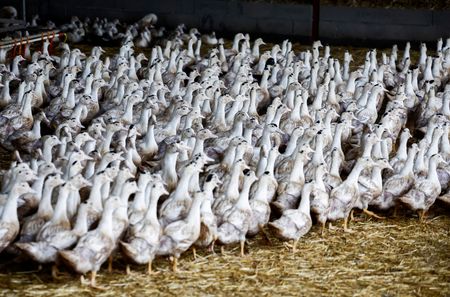By David Latona
UTIEL, Spain (Reuters) -Spanish rescue teams scoured flooded fields and stranded cars on Thursday for those still missing after devastating floods in the Valencia region that killed at least 95 people, with forecasts of more bad weather prompting storm alerts further north.
Local authorities have not disclosed how many people are still unaccounted for after Europe’s deadliest floods in years, but Defence Minister Margarita Robles said the death toll was likely to rise.
Rescuers used helicopters to winch survivors to safety in areas that were still flooded and combed through thick silt and the wreckage of vehicles in search of bodies.
Diggers and tractors equipped with water pumps were brought in to clear debris from the streets, television footage showed.
The floods in Valencia battered the region’s infrastructure, sweeping away bridges, roads, railtracks and buildings as rivers burst their banks.
About 80 km (50 miles) of roads in the eastern region were seriously damaged or impassable, said Transport Minister Oscar Puente. Many were blocked by abandoned cars.
“Unfortunately there are dead bodies in some vehicles,” Puente told reporters, adding that it would take two to three weeks to re-establish the high-speed train connection between Valencia and Madrid.
Calm weather returned on Thursday to the hardest-hit areas around the city of Valencia, Spain’s third-largest, but the AEMET state weather agency issued its highest level of alert for the province of Castellon. Further north in the Catalonia region, an amber alert was issued for the city of Tarragona.
Meteorologists said a year’s worth of rain had fallen in eight hours in parts of Valencia on Tuesday, causing pile-ups on highways and submerging farmland in a region that produces about two-thirds of the citrus fruit grown in Spain, a leading global exporter of oranges.
The storm that caused the torrential downpours has since moved in a northeasterly direction.
“There are already very strong storms in the area, especially in the north of Castellon,” AEMET posted on its X account. “The adverse weather continues! Beware!” it added, saying people should not travel to the area.
Prime Minister Pedro Sanchez visited a rescue coordination centre in L’Eliana, near the city of Valencia, and urged people to stay at home due to the threat of more stormy weather.
“Right now the most important thing is to safeguard as many lives as possible,” he told reporters.
Residents described seeing people clambering onto the roofs of their cars as a churning tide of brown water gushed through the streets on Tuesday, uprooting trees and dragging away chunks of masonry from buildings.
RESIDENTS COUNT LOSSES
In the hard-hit rural town of Utiel, some 85 km (53 miles) inland from the city of Valencia, the Magro river burst its banks, sending up to three metres (9.8 feet) of water into homes, which are mostly single-storey.
Utiel’s mayor, Ricardo Gabaldon, said at least six people had died in the town of about 12,000, most of them elderly or disabled people who were unable to clamber to safety.
Residents used water pumps carried on tractors as they started to clean up early on Thursday, with children helping to sweep the sidewalks. Ruined household appliances and furniture were piled up in the middle of roads and elderly people struggled to walk in the slippery, mud-coated streets.
“The sorrow is for the people who have died,” said Encarna, a 60-year-old teacher in the town, wiping away tears as she spoke in the street near her damaged home. “These are my savings, my effort, my life. But we are alive.”
The floods have also wrecked crops and killed livestock.
Utiel residents Javier Iranzo, 47, and Ana Carmen Fernandez, 48, told Reuters the flooding had completely wrecked their pig farm, with 50 of their animals having drowned.
They estimated the catastrophe had caused hundreds of thousands of euros of damages and, despite government pledges of help, said they worried about whether they would receive state aid to help rebuild.
(Reporting by David Latona, Emma Pinedo and Inti Landauro;Editing by Andrei Khalip and Helen Popper)














